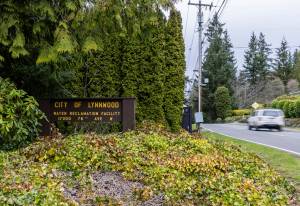Darrington cleans up its air, one wood stove at a time
Published 11:28 pm Sunday, February 1, 2009
DARRINGTON — Myra Lewis and Maxine Frable are breathing easier this winter.
Longtime friends and colleagues at Darrington School District, the forty-something women also are walking partners. It used to be when Lewis and Frable went out on cool evenings for an after-work walk, Lewis, who suffers from allergies, was sure to gasp in the smoky air.
On certain winter days four years ago, Darrington’s air was among the most polluted in the state. In this high valley town surrounded by mountains, stoves coughing up unhealthy ash particles were raising asthma rates among children and making it rough on older people, Councilman Dan Rankin said.
A project run by the town and the Puget Sound Clean Air Agency has since replaced nearly 70 old wood-burning stoves with wood-pellet stoves or propane heat. Since the program started, the air pollution has dropped.
When smoke from old wood-burning stoves gets trapped under a stagnant layer of cold air, it can send readings by an air quality monitor at Darrington High School shooting up into the danger zone. The monitor has tracked the air for more than four years. A diagram of monitor records shows that peaks of unhealthy air have decreased each year, down nearly to federal standards for “good” air quality — even in the winter.
People in Darrington deserve congratulations for the decrease in dirty air, said Rankin, who has been involved in the wood stove replacement project from its start.
“It’s really amazing that we have come this far in this amount of time,” he said. “It’s a big thing. One family I know who went to pellets saw their daughter stop using her inhaler, and her asthma symptoms go to almost zero.”
Starting the wood stove replacement program wasn’t an easy proposition, however. In fact it’s still a pretty sensitive issue in town. Proud are those who can claim that their old wood stoves are one-match wonders that never stop burning all winter.
The trouble is many people still don’t understand the health issues with wood stove emissions and believe it’s a right to keep one’s house warm with wood, Rankin said. The goal with the replacement program was to make the changeover easy, affordable and successful without angering anyone, he said.
Rankin hopes the good news about the drop in air pollution won’t encourage anybody in town to burn without care.
During the state’s recent burn ban, Darrington had a few days when the air quality was unhealthy, according to federal air quality standards.
In the summer, Darrington has some of the best air quality around. By comparing winter and summer, agency officials know that Darrington’s pollution is directly tied to wood stoves, Puget Sound Clean Air Agency spokesman Mike Schultz said.
The town has about 520 homes, and of those, about 175 were heated with wood stoves. About 40 percent of the wood-burning households have converted to cleaner heating sources. In most other places, those who have made the change represent only about 15 percent, Schultz said.
“We always wondered how much headway we could really make in Darrington,” he said. “Now the town is consistently under air quality levels that are unhealthy for groups of sensitive people. That says a lot.”
The smoky air Myra Lewis and Maxine Frable put up with during their daily walks around town prompted them to participate in the stove replacement program. Lewis went with a propane stove and Frable and her husband Kerry got a wood-pellet insert for their fireplace.
The Frables sometimes miss the feel of the wood heat, but remain pleased that they made the change for themselves and the town.
Even though fuel prices were high last year, Lewis said she, too, doesn’t regret her decision to switch.
“I love it. I don’t have to worry about bringing wood in or about my allergies,” Lewis said. “Out on our walks Maxine and I certainly have noticed the improvement. Before the air really affected my breathing.”
Reporter Gale Fiege: 425-339-3427 or gfiege@heraldnet.com.




